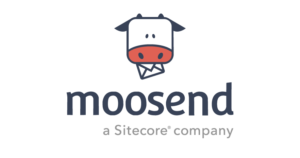In today’s digital-first business world, effective marketing is no longer just about creativity; it’s about smart tools. From small startups to large enterprises, every business needs robust solutions to reach customers, manage campaigns, and measure success. This is where Top marketing softwares come in. They are the backbone of modern marketing, enabling efficiency, precision, and scalability.
Table of Contents
Introduction
This comprehensive review will explore the top categories of marketing softwares available, providing insights into their purpose and popular examples. Our goal is to help you navigate the vast landscape and identify the perfect solutions for your specific business needs.
Why Marketing Softwares Are Indispensable
Before diving into the types, let’s quickly reiterate why investing in marketing softwares is crucial for growth:
Scalability: Tools that grow with your business, allowing you to manage increasing volume.
Automation: Automate repetitive tasks, freeing up your team for strategic work.
Data-Driven Decisions: Gain deep insights into campaign performance and customer behavior.
Enhanced Customer Experience: Personalize interactions and nurture leads more effectively.
Improved ROI: Optimize your marketing spend by identifying what works best.
CRM Marketing Softwares: The Customer Hub
Customer Relationship Management (CRM) marketing softwares are the heart of your customer interactions. They centralize customer data, track communications, manage sales pipelines, and streamline customer service. Essential for nurturing leads and maintaining strong customer relationships.
- Purpose: Manage customer interactions, sales pipelines, and support.
- Key Features: Contact management, lead tracking, sales forecasting, customer service modules.
- Examples:
Zoho CRM: A cost-effective solution with a comprehensive suite of tools for small to medium businesses.
HubSpot CRM: Offers a powerful free tier and scales with paid marketing, sales, and service hubs. Known for its user-friendly interface and robust integrations.
Salesforce Sales Cloud: An industry giant, highly customizable for businesses of all sizes, especially larger enterprises with complex needs.
Email Marketing Softwares: Direct Communication Powerhouses
Email marketing remains one of the most effective channels for lead nurturing, customer retention, and promotions. These marketing softwares help you design, send, and track email campaigns with ease, often including automation capabilities.
Purpose: Create, send, and analyze email campaigns and automated sequences.
Key Features: Drag-and-drop email builders, segmentation, A/B testing, automation workflows, analytics.
Examples:
ConvertKit: Popular among content creators and solopreneurs, focusing on audience growth and email automation.
Mailchimp: Excellent for beginners and small businesses, offering a generous free plan and intuitive design tools.
ActiveCampaign: Known for its advanced marketing automation capabilities, robust segmentation, and CRM integration.
Social Media Marketing Softwares: Managing Your Online Presence
Managing multiple social media platforms manually is a nightmare. Social media marketing softwares allow you to schedule posts, monitor mentions, analyze performance, and engage with your audience efficiently across various networks.
Purpose: Schedule posts, monitor engagement, and analyze social media performance.
Key Features: Content scheduling, social listening, audience engagement, analytics, team collaboration.
Examples:
Sprout Social: Offers comprehensive social media management, robust analytics, and excellent reporting for growing and large teams.
Hootsuite: A long-standing leader with broad platform support, ideal for managing multiple social profiles and teams.
Buffer: Focuses on simple scheduling and analytics, offering a clean interface and strong publishing features.
Choosing the Right Marketing Softwares for Your Business
With so many marketing softwares available, selecting the right ones involves careful consideration:
Reviews: What do other users say about their experience?
Align with Goals: What specific marketing objectives are you trying to achieve?
Budget: Determine your financial comfort zone – many tools offer different pricing tiers.
Scalability: Can the software grow with your business’s evolving needs?
Ease of Use: Is the learning curve manageable for your team?
Integrations: Will it seamlessly connect with your existing tech stack?
Support & Community: Is there reliable customer support and helpful resources?
In addition to the CTA, consider other design elements that can impact conversion rates. For example, a clean and clutter-free layout, easy-to-read fonts, and clear navigation can help create a seamless user experience and encourage visitors to take action.
Conclusion
This comprehensive review of top marketing software solutions highlights their crucial role in modern business. It emphasizes that choosing the right software is key to enhancing efficiency, optimizing campaigns, and driving growth. The review stresses the importance of aligning software selection with specific marketing objectives, budget, and operational needs, rather than just opting for popular platforms. By making informed choices in areas like automation, analytics, CRM, or content management, businesses can transform their marketing into data-driven, personalized, and impactful initiatives, gaining a competitive edge.




